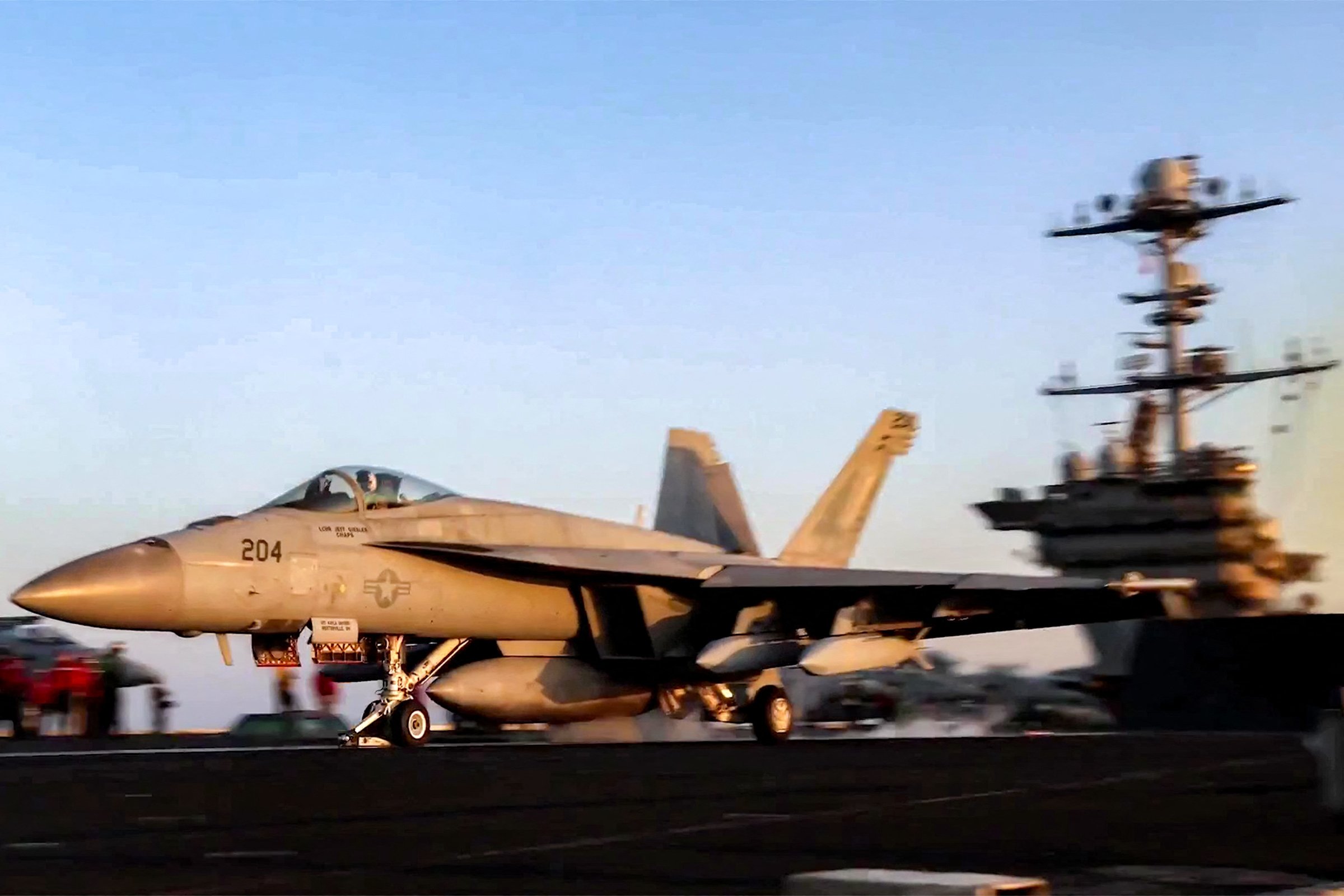© Turkuvaz Haberleşme ve Yayıncılık 2026
The U.S. launched fresh airstrikes on Yemen on Monday, escalating Washington’s largest military campaign in the Middle East since President Donald Trump took office in January.
Responding to the Iran-aligned Houthi movement's threats to international shipping, the U.S. launched a new wave of airstrikes earlier Saturday.
On Monday, the Red Sea port city of Hodeidah and al Jawf governorate north of the capital Sanaa were targeted, Yemeni media reported.
At least 53 people have been killed in the attacks, Anees Alsbahi, a spokesperson for the Houthi-run Health Ministry, said Sunday. Five children and two women were among the victims and 98 have been hurt, Alsbahi added on X.
The Houthis, an armed movement that has taken control of most of Yemen over the past decade, have launched scores of attacks on ships off its coast since November 2023, disrupting global commerce. The U.S. campaign to intercept missiles and drones has burned through stocks of U.S. air defenses.
The strikes, which one U.S. official told Reuters might continue for weeks, come as Washington ramps up sanctions pressure on Iran while trying to bring it to the negotiating table over its nuclear program.
Houthi leader Abdul Malik al-Houthi said Sunday the rebels would target U.S. ships in the Red Sea as long as the U.S. continues attacks on Yemen.
"If they continue their aggression, we will continue the escalation," he said in a televised speech.
The Houthi movement's political bureau described the U.S. attacks as a "war crime." Moscow urged Washington to stop them.
The Houthis' military spokesperson, without providing evidence, said in a televised statement early Monday that the group had launched a second attack against the U.S. aircraft carrier USS Harry S. Truman in the Red Sea.
Israel has weakened a large part of Iran's "Axis of Resistance" against U.S. influence in the Middle East – including Lebanon's Hezbollah and the Palestinian resistance group Hamas since the October 2023 incursion.
Top Hamas and Hezbollah leaders have been assassinated and the fall of another Iranian ally, Syria's Bashar Assad, in December also dealt a blow to the Islamic Republic.
But the Houthis, who defied a Saudi-led bombing campaign in a civil war for years, are still standing, along with pro-Iranian militias in Iraq.

The Houthis said last week they would resume attacks on Israeli ships passing through the Red Sea if Israel did not lift a block on aid entering Gaza.
They had launched scores of attacks on shipping after Israel launched its genocidal war on Gaza in late 2023, saying they were acting in solidarity with the Palestinians.
Trump warned Iran, the Houthis' main backer, that it needed to halt support for the group immediately. If Iran threatened the U.S., he said, "America will hold you fully accountable and, we won't be nice about it!"
In response, Hossein Salami, the top commander of Iran's Revolutionary Guards, said the Houthis made their own decisions.
"We warn our enemies that Iran will respond decisively and destructively if they carry out their threats," he told state media.
U.S. warplanes shot down 11 Houthi drones Sunday, none of which came close to the Truman, a U.S. official told Reuters. U.S. forces also tracked a missile that splashed down off the coast of Yemen, the official said.
U.S. Defense Secretary Pete Hegseth told Fox News' "Sunday Morning Futures": "The minute the Houthis say we'll stop shooting at your ships, we'll stop shooting at your drones. This campaign will end, but until then it will be unrelenting."
He said reopening freedom of navigation was a core national interest for the U.S. and that Iran had been "enabling the Houthis for far too long."
"They better back off," he said.
The Houthis suspended their campaign when Israel and Hamas agreed on a Gaza ceasefire in January. But on March 12 they said their threat to attack Israeli ships would stay in effect until Israel reapproved the delivery of aid and food into Gaza.
